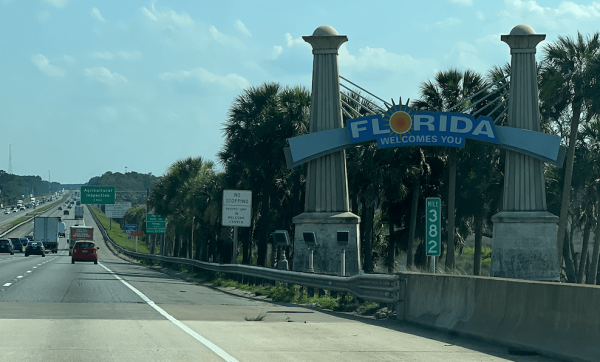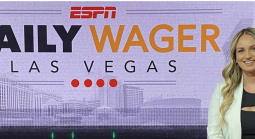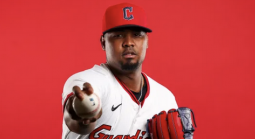D.C. Circuit Rule in Favor of the Seminole Tribe Sports Betting But a Long Road Ahead Still Likely
Breaking news. Florida #sportsbetting alert! Today, the D.C. Circuit ruled in favor of the Seminole Tribe completely reversing the District Court. This is a huge victory for Hard Rock and the first to favorably resolve a post-PASPA challenge under IGRA. More analysis to come!
Breaking news. Florida #sportsbetting alert! Today, the D.C. Circuit ruled in favor of the Seminole Tribe completely reversing the District Court. This is a huge victory for Hard Rock and the first to favorably resolve a post-PASPA challenge under IGRA. More analysis to come!
— Jeff Ifrah (@jifrah) June 30, 2023
More legal challenges were expected.
It was a unanimous ruling by a three judge panel for the US Circuit of Appeals in D.C.
Whether the Seminoles deal violates a Florida constitutional amendment remains a matter for the state courts to consider.
Online sports betting throughout Florida could become legal again after a federal appellate court sided with the Seminole Tribe of Florida, reversing a lower court decision that struck down the gaming compact signed between the state and the tribe in 2021.
Two non-tribal casino owners in Florida – Magic City Casino and the Bonita Springs Poker Room – challenged the compact between the state and Seminoles saying it violated the Indian Gaming Regulatory Act.
On the last night of Pride Month, the restaurant Hullabaloo in downtown West Palm Beach hosted its "Heels at Hullabaloo" event.
The gaming compact was negotiated between Gov. Ron DeSantis and the tribe and approved by the Florida Legislature in 2021
The Seminoles had briefly rolled out a sports betting app for a few weeks before the District Court ruling.
The decision also opens the door for additional legal challenges.
“Today’s decision will not be the final word on this issue,” said John Sowinski, spokesperson for No Casinos and Miami businesspeople and gambling opponents Armando Codina and Norman Braman, who filed separate lawsuits alleging that the federal government improperly approved the gaming compact.
They are reviewing their options moving forward and could relaunch their sports gambling app. Not so fast though.
"The D.C. Circuit leaves open the possibility of a Florida based state court challenge," Ifrah tweeted. "But absent that or a successful appeal to #SCOTUS, Florida #sportsbetting could be a reality soon."
Offshore books currently dominate the local Florida market as do regional bookies. The Seminoles could soon be joining the party.
Gambler Captain Jack Andrews tweeted:
"You'll see a lot of Floridians praising this decision. However, this is bad news for bettors. FL will only have one regulated sportsbook - and the Seminoles are a bunch of greedy mofo's."
Ifrah responded that the Seminoles will have the ability to license additional sportsbooks.
Andrews countered.
"They can be retail only (no app) and they have to pay, IIRC, a 40% tax on their revenues direct to the Seminoles. Is that really attractive to anyone?"
Ifrah clarified that retail and mobile will be permitted and that the 40% tax number quoted is indeed correct.
The deadline for filing a petition for rehearing is August 15th.
Daniel Wallach, another gaming attorney, offered his perspective.
"The practical effect: If both plaintiff groups seek rehearing, as expected, the mandate won’t issue until after the DC Circuit has decided the rehearing petitions. This will delay the re-launch of sports betting in Florida at least until the court proceedings have concluded."
Wallach tells Sports Betting Dime the court will not issue this final mandate if the plaintiffs submit a timely request for an “en banc hearing” with the court or decides to take the ruling to the Supreme Court.
“The status quo has not changed until the D.C. Circuit has issued the final mandate of the case, the final judgement. It’s an administrative act which makes the appellate court’s decision final. But, it will not issue a mandate if there’s a pending petition for hearing en banc. Until the en banc process is completed, which could be weeks or months, likely be months, no activity will happen in the interim. Even if a rehearing is denied, West Flagler’s pursuit of a petition for writ of certiorari before SCOTUS will likely delay the issuance of the mandate as well,” he said.
Wallach offered a time frame of between one and two years before anything can move forward in the Sunshine State.
“The most important decision in this case is the one that was just made. If you accept the premise that rehearing en banc is rarely granted, and that certiorari is sparingly granted by the Supreme Court, that’s a heck of a two court parlay to have to run. The odds favor the three-judge panel decision remaining the final decision in the case,” Wallach added.
Because the case has national implications for tribal gaming and non-tribal sports betting operators, Wallach won't necessarily be betting on the typical outcome with this type of scenario.
“There are two factors that suggest the Supreme Court would be willing to take this case. The circuit court split and the importance of the issue across the country impact tribes, non-tribal operators, in the vast majority of states,” he said.
Hamish Hume, an attorney who represents the pari-mutuels, criticized the panel’s ruling.
“The court correctly recognized that IGRA does not and cannot authorize gambling off of Indian lands, but then upheld a compact that purports on its face to do exactly that. We respectfully disagree with that decision, and are evaluating our possible next steps,” Hume said in an email.
USA vs. Jay Cohen in 2000 already found that bets do not occur where the server is located, in that case Antigua, but where the bet is placed. That case determined the wagers were occurring in the USA and Cohen served nearly two years as co-owner of World Sports Exchange.
A 2018 constitutional amendment also prohibits any type of gambling expansion, for which mobile remote sports betting most certainly is.
John Sowinski, president of the Central Florida-based group No Casinos, told the News Service that Friday’s ruling “is not the final word” on the issue, specifically pointing to that amendment.
“At the end of the day, the will of 72 percent of the people in Florida is going to be respected, and that is that voters, not politicians, have the final say on whether we expand gambling in Florida,” he said.
- Gilbert Horowitz, Gambling911.com















